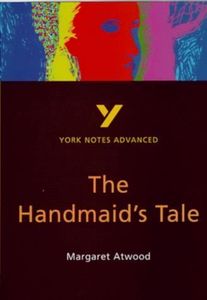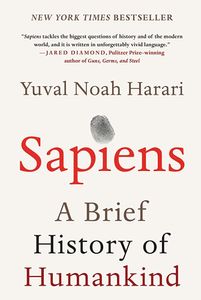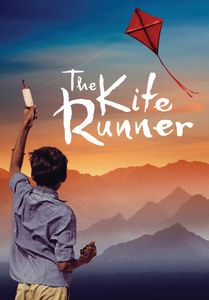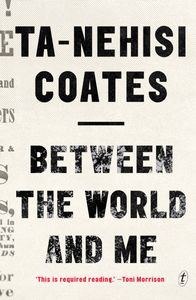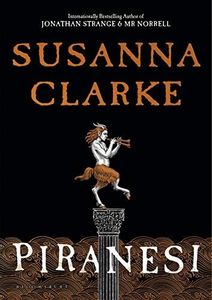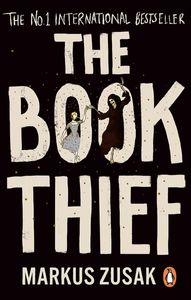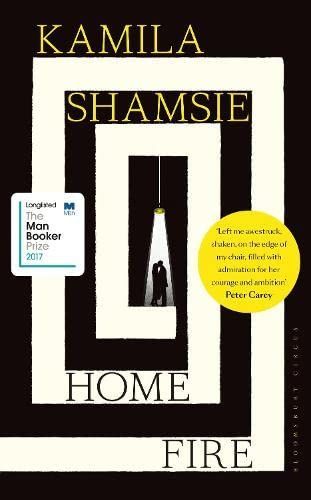
Home Fire
Reviews
This was remarkable. Will be on my mind for a very long time.
"He looked like a taunt, tasted like a world apart felt like barriers dissolving. He looked like opportunity, tasted like hope felt like love." Once everything starts to flow together I couldn't stop reading. There are passages, sentences that are beautifully written and powerful. It's a strong story of what kind of "normal" life Muslim families have to push through with suspicions from their government and false stories that are spread on the news. As well as the opposite with the life of a Muslim IN the government and the battles of how you are "supposed" to act. I love the stories interwoven at the end.
liked it, but didn’t love. finished bc I didn’t hate. I felt like the plot spent a long time building then everything happened all at once I almost missed the arc
Home Fire is an interpretation of Sophocles's Antigone set within the modern day British Pakistani community. I loved this concept the minute I heard about it; there are few works that come close to capturing the labyrinthine snarl of conflict between religious law, nationhood, family, and justice as Antigone, simultaneously functioning as a fable of cosmic proportions and a claustrophobic family drama. And indeed, the last two sections are incredible. The reason I'm not as enthusiastic about the rest is that the transposition from play to novel necessitates expansion, and Shamsie chose to begin the story's timeline earlier. It adds little narrative tension or flesh to the characters and is just there. I would have vastly preferred the last two sections standing alone as a novella.
4.5/5
i went in without reading reviews or knowing the premise of this book. so i was fairly excited by the opening and Isma's chapter and then almost everything after that, went downhill. the ending also didn't help at all. while i understand that this was a retelling of antigone but somehow the limitation of greek's tragedy fairly robbed this novel of it's incendiary potential. some parts i like but 70% of my time reading, i just want to rush through and get it done asap and thankfully it is quite a slim novel.
Begins with brilliant promise that overshadows the author's shoddy command of the language, but said lacking professionalism and the author's poor knowledge of humanity ultimately consumes all, leading to an eventual desecration of the brilliance of Sophocles' "Antigone", please look up the play and cleanse yourself off this book.
Maybe 4.5 stars. Very readable, gripping, unexpected, satisfying. And of course, incredibly sad.
Emotionally immersive, dramatic. Somewhat draining, but a great read.
I was a bit let down by this one. Mostly because the dynamics are replicated in other stuff I’ve consumed, almost exactly. I’m trying to remember what it is. I’m pretty sure it’s media. Maybe Homeland or The Bureau. But other immigrant stories have similar family dynamics and same inciting incident and fallout. So what this comes down to, for me, is the prose, which were alright; some standout simile usage that is miles better than most debuts. Character wise, they are harder to evaluate because they feel like they may differ than the average person. But almost tropes if you’ve consumed literature and nonfiction focusing on the same things that this does. As is, this hovered between a 2 and 3 because I found it predictable and retread ground. But it also came out a while ago; perhaps when it came out this was more novel. It does tell a story and it’s consumable, so I landed on a met expectations 3 (as set by the book).
Wow!
İngiltere ve ülkedeki müslüman nüfusun kabulü ve karşılaştıkları ön yargıları her iki gözden de aktaran, iyi tasarlanmış bir roman. Bu kadar çağdaş bir sorunun, en ağır yunan tragedyası olan Antigone'dan çıkışla kurgulanmış olması ama yine de dilindeki o gündelik hali koruyup politik olay örgüsünü dahil etmesi çok etkileyici. Kitap beş ayrı bölümde, beş ayrı karakterin açısından gösteriliyor. Bir tarafta cihatçı bir babanın çocukları olarak İngiltere'de toplumda yer almaya çalışan lakin erkek kardeşin de IŞID'e katılmasıyla hayatları daha da zorlaşan Isma ve Aneeka ile onların hayatını iyice zorlaştırıp bir yandan da Avrupalı gençlerin ikna, yolculuk ve sonraları ile IŞID'e dahil olma süreçlerini gördüğümüz Parvaiz. Diğer cephede ise artık farklı bir sınıfa dahil olmuş, tamamen yerelleşmiş - ya da başka bir bakış açısıyla asimile olmuş- Karamat ve oğlu Eamonn var. Tamamen farklı gözlerden okumak hem kurguyu daha gerçekçi yaparken hem de her birisinin seçimlerini okuyucu açısından daha anlaşılır kılıyor. Bu kadar hassas bir konuyu bu kadar kolay okunabilir olarak aktarması saygı duyulası. Ancak kişilere ayrılan bölümlerin kısalığı ve zaman çizgisinin karışıklığı kitabın negatif yönlerinden, zaten dört yıldız vermemin sebeplerinden de birisi bu. Bunun dışında çok sevdiğim kitaplardan birisi oldu. Tavsiye ederim.
This book is incredible! The story is so interesting and unique and humanizes people in a way I never would have thought about. It is super thought provoking and the flow between different narrators is really interesting and adds to the idea of thinking about hard topics from different perspectives. It is tragic and heart-wrenching but also so real and human. The pace definitely increases as the story goes on.
And never the Twain shall meet could be the subtitle of the book. A book of errors and misunderstandings and ambition and love. And the devastating results of it all. Worth reading
4.5/5 My only complaint was the long chapters and switching perspectives sometimes made it hard to stay engaged in the story.
Thank god for the second half. For much of the book I was left wondering what I was missing after all of the praise that surrounds Home Fire. Yes, it is timely and essential in it's way. It's presentation of British Muslims as individuals rather than a monolith is essential and Shamsie looks at the nuances of faith, the points of contact between nationality and nationalism, the spectrum of traditionalism and integration. I learnt a lot from the situations she creates and the way these issues played out. And when it was good it was absolutely spell-binding. Parvaiz and Aneeka absolutely broke my heart and anyone who might wonder how a British-born individual could decide to join Daesh should read Parvaiz's section. I dithered between hateing Karamat and reluctantly seeing how he became the man who could make the decisions he did. But despite that gut-punch of an ending I wasn't satisfied overall because the novel felt unbalanced. Too much space was dedicated to Isma and Eamonn creating a long, slow and frankly not very interesting beginning that meant I had almost given up before the story really hit its stride. They are important characters for the story but they lacked the depth of Parvaiz and Aneeka and even Karamat and certainly didn't need as much space to achieve their purpose as they were given.The shallow romance between Eamonn and Aneeka that struggled to sustain the events that followed and that was in part because we saw less of Aneeka than Eamonn in it. Home Fire is not perfect but the good bits were good enough to earn 4 stars, even if they were constricted by the weaknesses of the other sections. It's still and important book and we need more of stories like this.
Loved the greek myth retelling aspect of this novel. Also, that ending!
Home Fire was such an engaging book, with characters that I truly enjoyed reading. Each time we shifted perspective I was sad to leave them. I don't want to say too much about the plot, partially because I went into it not knowing very much about it at all, and it was such a surprising and enjoyable experience. I will say that it made me think complexly about the role of faith and religion, love (in its many variations), family, language, politics, and sound. I absolutely loved the inclusion of sound as an element to think through the world as experienced by these characters - it made it more vivid, and I felt Parvaiz as a much more complete character as a consequence. From the very first chapter when I said out loud "Oh - this is good!", to the last scene when I was shocked and moved, I thoroughly enjoyed this book and heartily recommend it.
This has been sitting in my library for a few years and I finally decided to pick it up and I'm so glad I did. Great story and characters.
five stars. I was not ready.
Very captivating, but I felt there were perspectives that could have been more rigorously explored. Also, the ending was bordering on ridiculous. Lastly, the narrative which switched between characters for each chapter left me feeling unsatisfied, I wanted to go back to each character. Overall, I enjoyed the bold exploration of a highly current topic, but I felt the writing lacked maturity.
4.5
I’ve been thinking a lot about legacy and heritage recently. For the most part, this rumination has been centred on how to preserve and honor the past, but after recently reading Home Fire , I’ve been turned on to the opposite question: what happens if your legacy is something you want, you need to escape? Kamila Shamsie’s novel is about many things—duty, family, modernity, and geopolitics among them—but a central concern revolves around the notion of a new generation trying to distance itself from the reputation of the previous one. Isma, Aneeka and Parvaiz may be the children of a famed fighter for the Islamic State, but that is not their legacy; instead, they are doing what they can to create their own. I am reminded of this when I read about the way some news media have been treating Ammar Campa-Najjar, who is running for Congress in this election. His grandfather, whom Campa-Najjar disavows vehemently, was one of the Munich terrrorists, and died sixteen years before Ammar was born. Yet, some media outlets continue to tie his campaign to the actions of his grandfather; they are trying to tie his legacy to a disavowed heritage. How do you separate yourself from the mistakes, the horrors of the ones that came before you? What does it mean to share the name, the blood of someone whom you disavow, discredit; what does it mean to want to distance yourself from the generations who were supposed to know better, but obviously didn’t? In Home Fire , Kamila Shamsie asks these questions, but does not answer them. Her characters grapple with their heritage in different ways, but in the end the question remains: we are different than those that came before us, so how do we make sure that the path we carve makes that difference clear? (originally posted on inthemargins.ca)
I have genuine love for Kamila Shamsie's language. She's the closest contemporary of Jhumpa Lahiri that I've seen from the subcontinent (someone who I absolutely love, in terms of writing prowess). In a short time I got to know Home Fire's characters like I've known them all my life - possibly because of the relatability to them you tend to feel if you're brown. This is a powerful book.
